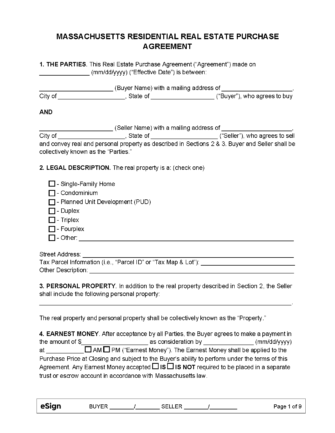

The Massachusetts residential purchase and sale agreement is used to define and perform a real estate transfer between the seller of residential property and a buyer. The completed form will relay the unique terms and conditions of the sale, including the purchase price and the manner of payment.
In accordance with state laws, sellers are not required to disclose property defects or issues, and it is the buyer’s duty to perform a home inspection and inquire about any defects. The sale is deemed final once the form is completed and signed by both parties.
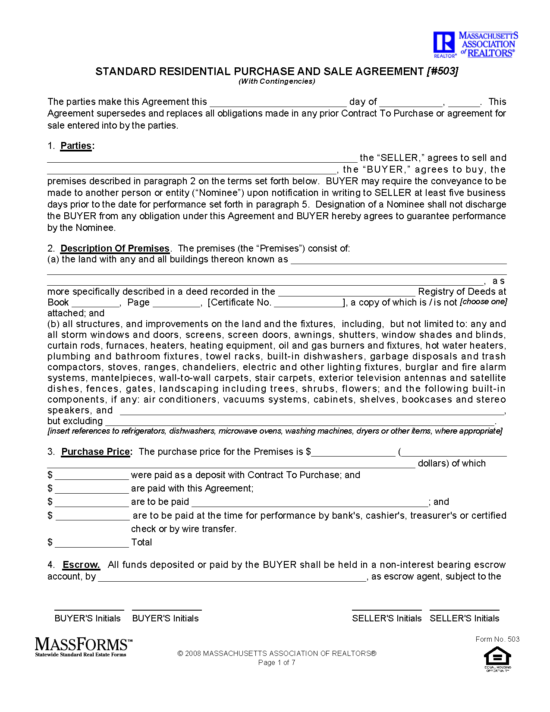
Massachusetts Standard Residential Purchase and Sale Agreement (#503) – The Massachusetts Association of Realtors provides this form for its members to effectuate purchases and sales of residential real estate.
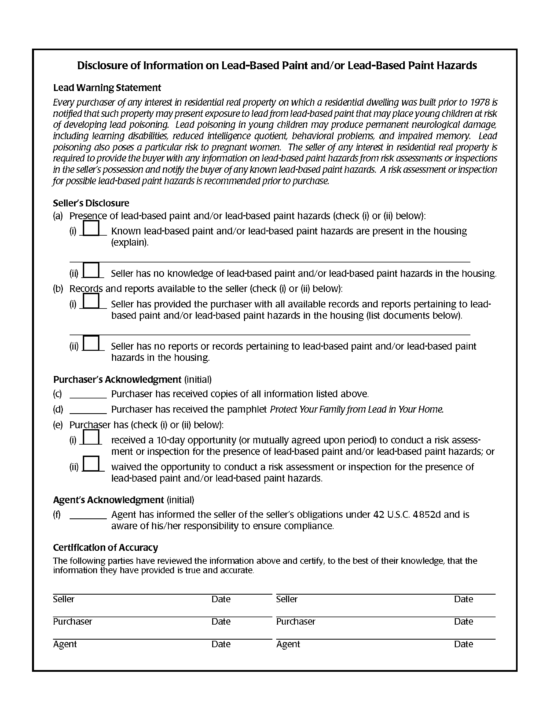
Lead-Based Paint – All individuals selling real estate property in the US are required to provide this documentation briefing potential buyers on the risks associated with lead-based paint, and how to manage it if it is found in their dwelling.
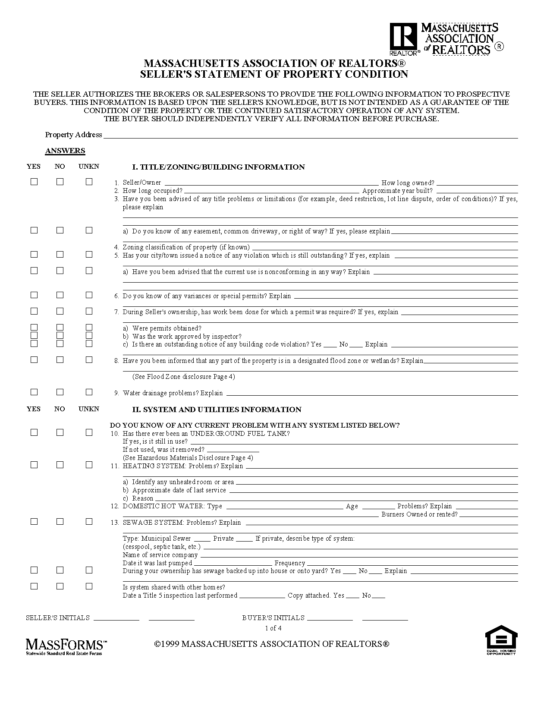
Property Disclosure Statement (Optional) – An optional disclosure informing purchasers of the condition and defects of a residential property.
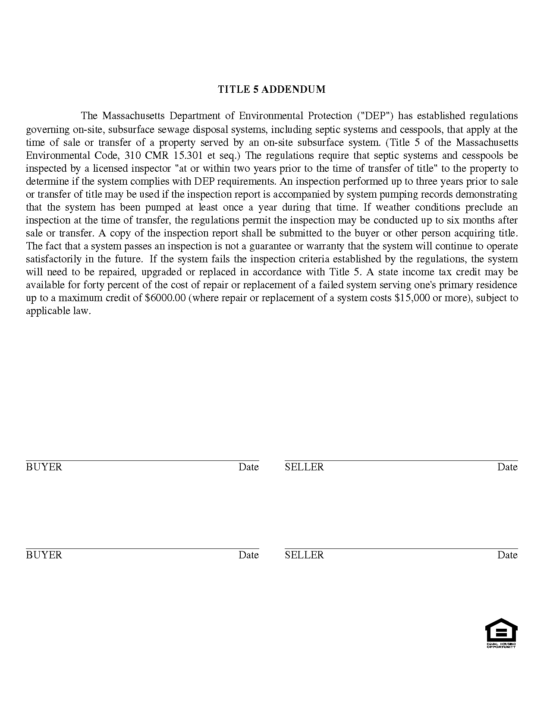
Title 5 Addendum for Septic Tanks and Cesspools (310 CMR 15.301) – Sellers are required to disclose whether a property is served by a subsurface sewage disposal system such as septic tanks or cesspools, which must pass an inspection at or within two (2) years prior to the sale of the property. Alternatively, an inspection may be performed up to three (3) years prior to the sale of the property if it can be shown that the system has been pumped at least once a year during this timeframe. If an inspection cannot be performed at the time of sale due to weather conditions, a six (6) month period after the time of sale or transfer is allowed to complete the inspection.
Massachusetts uses a “caveat emptor” (which translates to “let the buyer beware”), meaning the seller of residential property is not legally obligated to disclose anything to the purchaser concerning the property, not including the presence of lead paint or hazardous materials, the use of an inspection-approved septic tank or sewage disposal system, or anything that may risk the safety or health of the home’s occupants. The purchaser is responsible for performing a home inspection and asking the seller if the property has any issues or defects, at which point which the seller may not intentionally misinform or conceal information from the buyer.